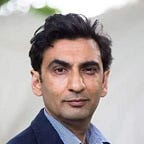Pakistan’s Turbulent Political History: Corruption, Coups, and Foreign Meddling
Since gaining independence, Pakistan’s political history has been defined by recurring cycles of instability involving military dictatorships, corruption, political assassinations, and foreign interference. This turbulent legacy has hindered Pakistan’s democratic development and stifled social progress. At the core of this pattern of turmoil lies a complex interplay between domestic struggles for power and the shaping influence of external geopolitical pressures.
The origins of this cycle trace back to 1977, when General Zia ul-Haq seized power in a military coup, overthrowing the elected government of Zulfikar Ali Bhutto and establishing an autocratic Islamic state. As an ally of the United States in the conflict against the Soviets in Afghanistan, Zia received substantial military aid that empowered Pakistan’s armed forces over civilian leadership. This foreign support swelled the military’s dominance in domestic politics while weakening democratic governance and the rule of law.
Zia aggressively promoted Islamic fundamentalism while rolling back civil liberties during his decade-long dictatorship. This era witnessed the rise of heroin trafficking and smuggling networks funnelling aid to fund Afghan mujahideen groups—corruption scandals still haunting Pakistan today.
After Zia’s death in 1988, Pakistan had a brief democratic interlude under Benazir Bhutto, daughter of the overthrown Zulfikar Ali Bhutto. However, amid charges of corruption, her government was dismissed in 1990 as Pakistan’s brief democratic spring rapidly receded. This period also saw political assassinations distressingly become commonplace, targeting figures like Zulfikar Bhutto, Zia ul-Haq, and later Benazir herself, sowing seeds of uncertainty, fear, and suspicion.
Benazir Bhutto and her rival Nawaz Sharif engaged in constant political squabbling during the 1990s, with both of them holding sporadic positions as prime minister and frequently facing accusations of corruption. Their successive governments faced routine destabilisation by an assertive military and intelligence establishment that retained dominant influence behind the scenes.
This trend endured after General Pervez Musharraf’s 1999 military coup, which installed him as ruler, while Pakistan remained a key strategic ally of the United States in the post-9/11 ‘War on Terror’. Despite ample aid flows to Pakistan, Musharraf’s government crumbled from the same corruption and misgovernance afflicting both his military and civilian predecessors.
The recent imprisonment of former Prime Minister Imran Khan on corruption charges epitomises Pakistan’s recurrent cycle of turmoil. Khan had come to power promising to eradicate graft but became enmeshed in the patronage networks underpinning Pakistan’s politics. His ouster has further eroded public trust in democratic governance.
Throughout its history, extensive foreign interference has accentuated Pakistan’s domestic political struggles. Since the 1950s, US military assistance has empowered military rulers over elected civilians. Even after 1990, American support for Pakistani military operations persisted, often destabilising the country and region, as in the case of backing Islamist militant groups.
This complex interplay of political manoeuvring, corruption, and external influence has bred an atmosphere of uncertainty and suspicion, with mysterious assassinations of Pakistani leaders continuing from the late 1970s to date. The spectre of political violence and unaccountable power looms large in Pakistan’s national consciousness.
The implications of this legacy are deep, as Pakistan’s cycle of coups, graft, and foreign meddling has repeatedly undermined the rule of law and democratic accountability. The nation’s vulnerability to external pressures—due to a lack of robust civilian institutions—has perpetuated instability even as the Pakistani people continue to bear the costs.
To break from its turbulent history, Pakistan needs to implement electoral reforms, assert civilian control over the military, and build functional democratic institutions. Upholding the rule of law and accountability at all levels of government is critical to curtailing corruption. Pakistan must also craft a more autonomous foreign policy to break free of destabilising external influences.
With determined political will and public mobilisation, Pakistan can potentially transition from its current state of recurring crises to a stable country with democratic governance capable of serving its populace. But the road ahead remains filled with formidable political and institutional challenges. How Pakistan manages its fragile democracy and redefines civil-military relations will shape its future trajectory. The stakes are high, but the Pakistani people deserve no less than an effective, representative government free from the shadows of coups, graft, assassinations, and foreign interference after decades of turbulence and stunted development.
